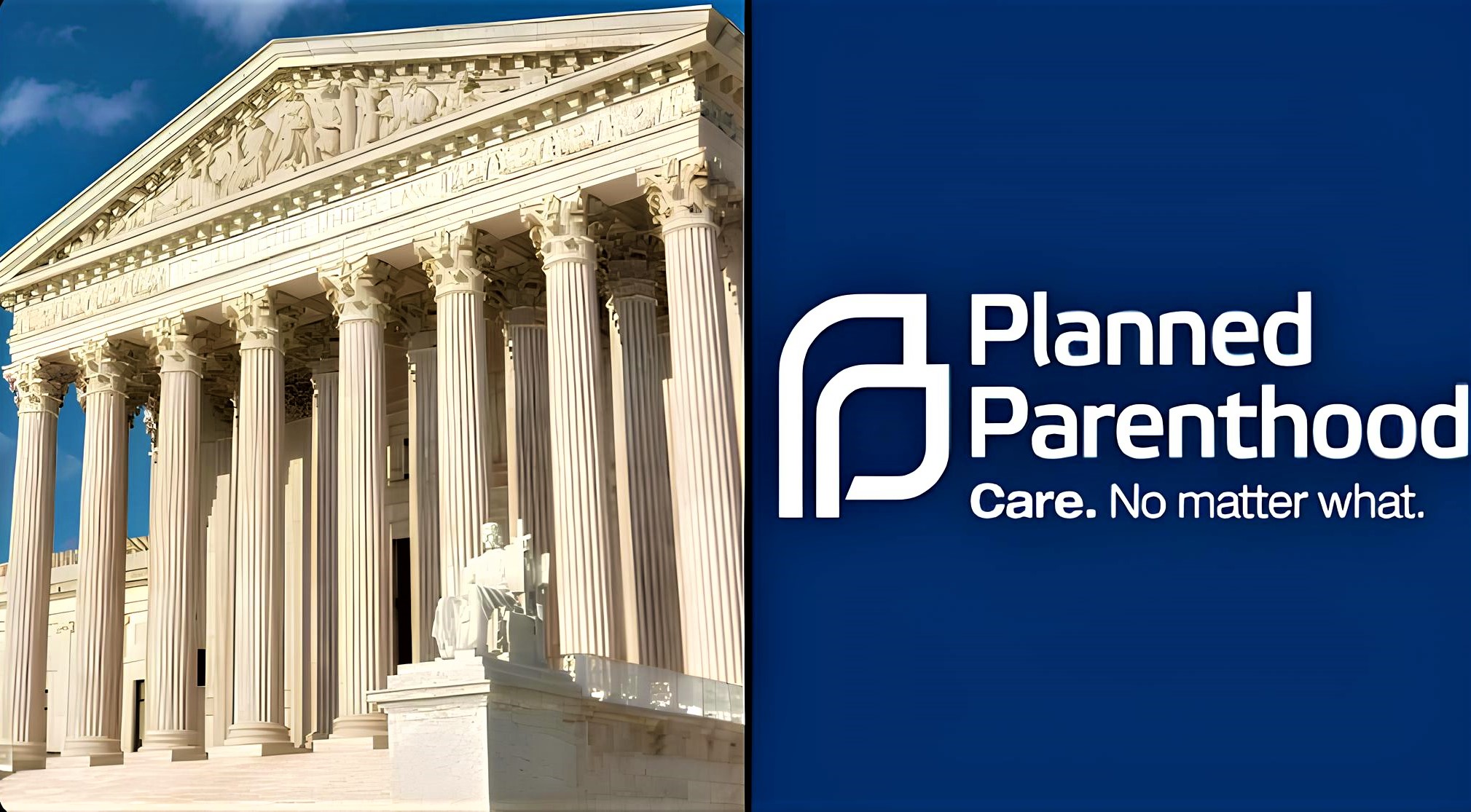How the Supreme Court South Carolina Planned Parenthood Ruling Redefines Medicaid Rights
Political Fallout After Supreme Court South Carolina Planned Parenthood Decision.
The United States Supreme Court on June 26, 2025, came down with a shocking decision against reproductive health advocates’ hopes. It was a 6-3 conservative majority which went in favor of South Carolina’s request to take away Planned Parenthood’s Medicaid reimbursement funds. The powerful ruling in the case of Medina v. Planned Parenthood South Atlantic changes the legal field by which it is determined that individual Medicaid beneficiaries do not have a private right to sue under the “any qualified provider” clause of the federal Medicaid Act.
To put it simply, the Supreme Court’s decision for South Carolina and Planned Parenthood opens up a green light for any Republican-led state which wants to defund Planned Parenthood or other abortion-related providers—which it is to be noted do not in any case pay for most abortions via Medicaid.
Anatomy of the Case: From the Base of the Hill to the Top of the Mountain
In 2018, Governor Henry McMaster of South Carolina had Planned Parenthood South Atlantic (PPSAT) removed from the state’s Medicaid program, stating that taxpayers should not have to support what he considered abortion providers. PPSAT and patient Julie Edwards took the issue to court and won at two lower federal levels. The Fourth Circuit ruled that South Carolina was in violation of the Medicaid promise which is that beneficiaries “may obtain” care from “any qualified and willing provider.”
Does §1983 provide a cause of action for Medicaid patients to bring the any-qualified-provider suit in federal court? In his opinion, which became the Gorsuch opinion that broke from the previous circuit court’s trend (which for decades had been in favor of the issue), he said no, also which in turn removed the injunctions which had protected Planned Parenthood clinics in Charleston and Columbia from being excluded.
Why the 6-3 Split Matters
Chief Justice John Roberts along with Justices Clarence Thomas, Samuel Alito, Brett Kavanaugh, and Amy Coney Barrett supported Gorsuch. That which we see is a replay of the 2022 Dobbs decision which presents a stable group of justices that is behind states’ rights in reproductive health care.
At the same time, Justice Jackson’s dissent maintained that the majority is in effect throwing a bone to low income Southerners which in fact are at issue of health care provider shortfalls, also it is reported that the Supreme Court has done away with the only means which those people have to take issue with political interference in the removal of health care providers.
Immediate Impact Inside South Carolina
Planned Parenthood South Atlantic serves up to 1,000 Medicaid patients a year for birth control, cancer screens, STI testing, and routine exams—which is a $90,000 annual Medicaid reimbursement total, a very small part of the state’s $9 billion Medicaid budget. Also reports that if the clinics were to shut down it would leave entire counties without an available OB-GYN which accepts Medicaid.
Governor McMaster marked on X (previously Twitter):
Today victory for life and for South Carolinians which means we can now see to it that Medicaid funds go to providers which value life.
That post got over 42,000 likes within days, and we also saw it trend using #DefundPlannedParenthood.
Ripple Effects Nationally
Because the court did not limit its decision to abortion funding issues, it is predicted that at least 16 of the GOP-led states will now put forward again what had been dormant efforts to get Planned Parenthood and other political targets out of the Medicaid program. The Wall Street Journal reports that in Texas, Florida, and Idaho lawmakers have draft regulations which they will put forth as soon as a favorable Supreme Court decision is issued.
Planned Parenthood Federation of America put out a press release shortly after the ruling:
“Make no mistake: Today we see a campaign which is going after low income people’s access to cancer screens, birth control, and basic preventive care. We will be present in every state to keep our doors open.”
What Happens to Medicaid Beneficiaries Now?
- No universal “provider choice” lawsuit: Patients may no longer use §1983 to secure the return of excluded providers.
- Administrative appeals only: Beneficiaries turn to federal agencies which in large part do not step in until after the fact to challenge state exclusions.
- Clinic closures loom: Planned Parenthood reports that we may see the doors close on almost 200 health centers in 24 states if Medicaid reimbursements go away, which in turn will affect nearly half of which at present have the only local reproductive health care option.
Political Chessboard: Primary Care Fuel
The Supreme Court of South Carolina’s Planned Parenthood ruling comes in a few months pre-2026 midterms, which saw immediate reaction from proponents and critics. The Susan B. Anthony Pro-Life America group celebrated the decision as “a giant step forward in ending what they see as taxpayer complicity in abortion.” At the same time, Progressive organizations like the National Latina Institute for Reproductive Health declared it “cruel over care” and promised to turn out the base in key states.
In the early goings, CrowdTangle reports that the hashtag *StandWithPP saw a 310% increase in the first six hours and that #DefundPlannedParenthood urged did 425%. Also on TikTok, a clip of Justice Jackson’s dissent transcript got 3.1 million views in a day.
Legal Fault Lines Going Forward
- Congressional Clarification: The large majority puts forth that which allows lawmakers to draft new Medicaid laws with clear and definite language that gives rise to rights; we see thus a large scale legislative battle in Washington.
- Commerce Clause Challenges: Blue states may bring suit against South Carolina for its interference with interstate health care networks which may not pan out.
- Equal Protection Litigation: Civil rights organizations are looking at which 14th Amendment claims may support the fact that out of all health providers in the state that which are women’s health focused this one is excluded and that does in large part harm people of color who make up almost 60% of South Carolina’s Medicaid population.
How Clinics Are Preparing
Planned Parenthood South Atlantic reports they will transition to a sliding scale fee structure and grow their telehealth services in an effort to maintain current patient care. That said, however, staff reductions and shortened hours are a given if the state drops Medicaid dollars. Also, independent community health centers that are already dealing with very long wait lists for appointments question if they will be able to handle the large increase in patients which PP South Atlantic’s former patients will become.
Grassroots Backlash and Social-Media Echo Chamber
At the stroke of 5 p.m. EST, over 200 protesters came out to the Supreme Court building, which was a site of signs that read “My Body My Provider.” Live streams of the event, which were under the watchful eyes of #ShameOnSCOTUS, reached 500,000 simultaneous viewers on Twitch at some points, while at the same time conservative influencers were at it with memes that declared the decision a big defeat for Big Abortion.
A viral post from @ReproRightsLawyer on Twitter which put into words progressive frustration:
SCOTUS has given states a manual to use Medicaid for political gain. First Planned Parenthood, soon to be any health organization which goes against the majority. Health care by politics, not by qualification.
Conservative activist @LifeWins replied:
Taxpayer wins. Women will still have access—just not at for profit clinics.
The exchange is of how the Supreme Court South Carolina Planned Parenthood case is a issue which is widening America’s great cultural divide.
Long-Term Stakes for Reproductive Health
Public health researchers report that when Planned Parenthood leaves a state Medicaid network, what we see is an increase in STI rates, birth control use going down, and cervical cancer screening which drops off within five years—a trend which we have seen play out in 2013 after Texas defunded similar clinics. Also in South Carolina, which is number 8 in the nation for maternal mortality, we see that with the loss of two urban Planned Parenthood health centers which may push rural counties into a desert for gynecological care.
Action Steps for Patients
- Verify Coverage: Call the South Carolina Health and Human Services hotline to see if your provider is still in network.
- Seek Telemedicine: Planned Parenthood’s online store still has reduced price options for birth control and UTI treatment.
- Document Denials: If your local clinic is turning away new Medicaid patients, file a complaint with the federal Centers for Medicare & Medicaid Services.
Final Word
By the Supreme Court’s decision in South Carolina Planned Parenthood, which took away patients’ last chance at which to keep their choice of health care providers, the states have been given a large new role in the abortion issue which the case in fact did not address at all.
While some may see it as a pro-life victory for tax dollars or others may put it forth as a tragic defeat for health care access of the underprivileged, what this ruling does is to change the play field between federal programs, state-based ideas, and individual rights for years to come. We will see this play out in the coming years in the state houses, in the lower courts, and most immediately in the lives of Medicaid patients who are left to wonder what health care options are still available to them.
News reference: Reuters USA Today
Read more latest articles HERE





Your article helped me a lot, is there any more related content? Thanks! https://accounts.binance.info/ru-UA/register?ref=JVDCDCK4
Your article helped me a lot, is there any more related content? Thanks!